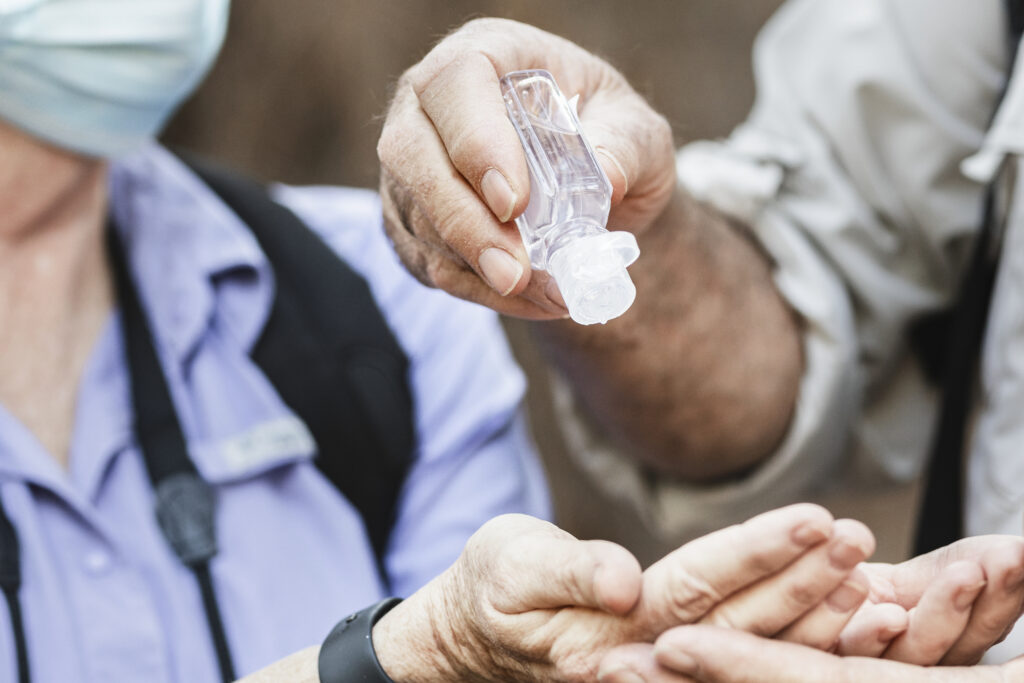IMANA NEWS
The Role of Medical Relief in Promoting Sustainable Healthcare
3 December 2024
Sustainable healthcare promotes practices that keep healthcare systems operating while keeping in mind environmental concerns. It involves mitigating their unintended negative impact on the environment. From medical and pharmaceutical research to hospital operations and patient management, sustainable healthcare encourages awareness about carbon footprint and the steps needed to significantly minimize it.

Essential to achieving this end is disease prevention and empowering patients to take care of themselves. When a patient’s condition is not addressed immediately and worsens, it requires long-term intensive treatment that demands energy and causes ecological harm.
When Disasters Strike
In large-scale scenarios like disaster-hit communities, failure to provide emergency and long-term medical care to victims exponentially contributes to environmental problems. When disease outbreaks or chronic conditions go unaddressed, the demand for medical care escalates, requiring increasingly intricate interventions that can weigh heavily on the planet.
The Islamic Medical Association of North America (IMANA) recognizes the profound advantages of responding swiftly to medical crises, particularly when healthcare infrastructure is stretched thin and struggles to deliver timely, effective services.
Rapid medical relief for impacted communities is essential—not only for immediate well-being but also for preserving the ecological balance over the long term.
Narrowing the Policy-Practice Divide
Though healthcare systems are gradually pivoting toward sustainability, a lot of work still needs to be done. Achieving meaningful change, both locally and globally, depends on coordinated efforts across all sectors.
Collaboration among policymakers, healthcare providers, community leaders, and institutions is vital to turning sustainable healthcare policies into meaningful, actionable steps that benefit human health and environmental integrity. Change can take root locally through the united efforts of governments, medical professionals, academic institutions, service providers, and hospital administrators.
Where policies are already in place, some sectors may not be fully receptive to the concept of proactive disease prevention and patient empowerment. The transition may take time but with medical relief providers such as IMANA, we can highlight the realities on the ground. This can help mobilize swift preventive action, reducing the weight of medical care on the planet.
Saving Lives, Saving the Planet
When a natural disaster, conflict, or economic collapse hits a community, health and safety are jeopardized. Many innocent victims suffer from displacement, injury, and other health and safety risks. The lack of access to food, clean water, and shelter makes them susceptible to infections, disease outbreaks, and long-term physical and mental ailments if needs are not immediately met.
Moreover, starvation and sickness lead to the unnecessary loss of lives, resulting in trauma and long-term ill effects on families and communities. These dire scenarios require immediate help lest they become healthcare-dependent for many years.
Emergency relief operations are extremely necessary for disaster-hit communities because there is limited help from their government and other sectors. Catastrophes affect the delivery of vital aid, slowing down the local capacity to respond to civilian needs.
A few of the most important emergency medical relief supplies include medicine, food, clean water, surgical procedures, non-surgical medical treatment, and sanitation services. These basic provisions can mean the difference between healing, recovery, the deterioration of health, and the eventual loss of life.
Our lean systems and low-carbon treatment methods combined with equipping local community leaders and stakeholders with the capacity to take action enable the delivery of sustainable solutions even in the most dire situations.
IMANA’s Impact
Our primary mission is to save lives and relieve suffering by providing timely and effective medical care to the sick and injured. Over the years, IMANA has deployed 273 emergency medical response teams after various disasters and emergencies, which provide care and treated tens of thousands of patients.
Our rapid-response teams provide pre-hospital patient evaluation, basic emergency medical care, primary care services, and patient movement.
We’ve enabled continuous long-term medical assistance to victims by building and equipping several health centers in the affected communities.
We Can Make Change Happen Together
At IMANA, we’re inspired and guided by sustainable healthcare principles. We promote its practice and value across our work, particularly when emergency medical response is necessary.
Timely and effective medical care facilitates long-term assistance, significantly preventing the spread of diseases and the negative effects of malnutrition and the lack of sanitation.
Moreover, our CME education and mentorship programs emphasize the importance of prevention through screening and healthy habits. We teach and encourage healthcare professionals to embrace sustainable healthcare and green medical practices.
This helps them deliver effective patient care that focuses on prevention. Our medical teams enable shorter treatment periods, faster recovery, and patient empowerment. We promote wellness at home, lessening carbon emissions and medical waste.
Support Sustainable Healthcare Today
Our healthcare systems are effective in meeting today’s public health needs but we must ensure they don’t jeopardize the health of future generations. Sustainable healthcare aims to deliver treatment while minimizing environmental impact, conserving resources, and reducing carbon footprints.
IMANA’s emergency medical relief initiatives play a vital role in this effort. By employing efficient systems, low-carbon treatment methods, and training local leaders, we provide sustainable, life-saving care to communities in crisis. Every outbreak we prevent and every life saved today helps reduce healthcare demands tomorrow, protecting both people and the planet.
We recognize the evolving needs of victims and patients. We support sustainable healthcare because we understand the far-reaching impact of ecologically damaging healthcare.
You can be part of this mission by donating or volunteering to support our work. Visit imana.org to learn more about IMANA’s commitment to sustainable healthcare and how you can help build a healthier, more sustainable future.